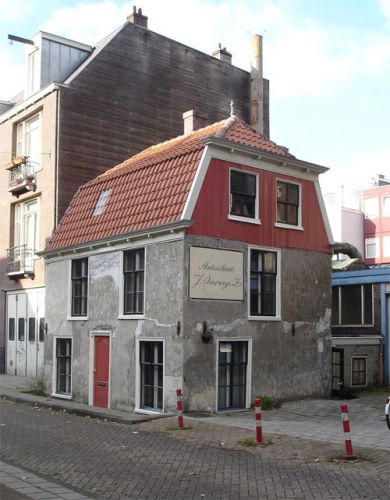

Polder is the term used to refer to large stretches of land reclaimed from the sea or fresh water areas, drained, separated from the sea by dikes and dams and used as both farmland and to build on. Land reclamation projects and 'water management' - the science of keeping waterways across the country under control to prevent floods and disasters - have been part of the Dutch culture and its way of life since the ancient times. At the moment, the Netherlands counts no less than 24 polders, of which Flevopolder is the largest man-made island in the world.
The polder house at Rustenburgerstraat 8 is now a little lost among the bigger buildings surrounding it. However, one can observe that the street level at the time of its construction was considerably lower than it is now. The polder where the house stands, was once called the Binnendijk Buitenveldertbaan Polder. It went as far as what is now Amstelveen. During the golden age, when Amsterdam was one of the major economic centers of the world, wealthy merchants would build here, along the Amstel bank, de Wetering - large country estates, houses with gardens and farmlands. Here they would escape to from the cramped and unhealthy life within the city walls.
Once Amsterdam had passed the zenith of its economic flourish, country estates became too expensive to maintain. The buildings fell into disrepair, were demolished or used as warehouses. The remnants of this luxury, now restored and brought to its former splendor and again used as living quarters by the affluent locals, can be seen further up the Amstel a few kilometers out of the city. However, back in the day, this area remained a place the local residents used mainly for leisure and recreation. There were taverns and 'lustplaatzen' ('lust houses' or brothels) and one could behold the view of the wide vistas of the Amstel and the flat stretches of the polder. The peace and quiet of this area inspired Rembrandt, who has made a number of etchings that credibly represent the feel of the polder.